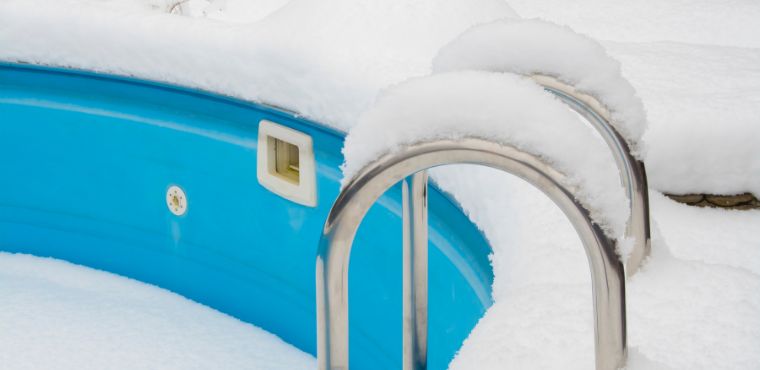Many homeowners with pools hear about winterization and all the steps they need to take to protect their pools from extensive damage in the colder months. However, some people perform all the necessary steps except properly balancing the water. Here are some of the ideal chemical levels for a pool in the winter to keep things fresh and healthy for springtime.
Why Balance Is Important in Winter
Failing to balance the chemicals in your pool during the winter makes it easier for those imbalances to lead to larger problems when spring rolls around. If your pool’s pH balance is too low in the winter, it may lead to corrosion on the pool liner. If the alkalinity is too high, you may notice murky, cloudy water that requires a lot of additional effort to clear. Failure to prepare your pool water for the winter is one of the most common maintenance mistakes pool owners make, especially if you live in a region with a colder climate.
Alkalinity, pH, and Calcium Levels
Fortunately, you don’t need any special substances when trying to get the ideal chemical levels for your pool in the winter. You may want to do a water test so you have a better idea of where to start, but most of the chemicals you should add are things you already have.
The alkalinity, pH balance, and calcium levels in your pool drop naturally over time, so you should raise them all before closing things up for the winter. Alkalinity is best at around 165 ppm in the winter, while the pH balance should be at 7.8. While calcium doesn’t naturally decline in the winter, raising the hardness levels to around 200 ppm keeps the physical foundation of your pool from eroding.
Winterizing Agents
One of the most common threats from leaving your pool stagnant throughout the winter is algae, which causes green water, stains, and unpleasant odors. If you live in an area with colder weather and snow, adding a winterizing algaecide to the pool water can reduce these problems. We recommend adding this agent after the chlorine and other chemicals are balanced. Adding the agent later may cause issues with your pool’s chemical balance.








